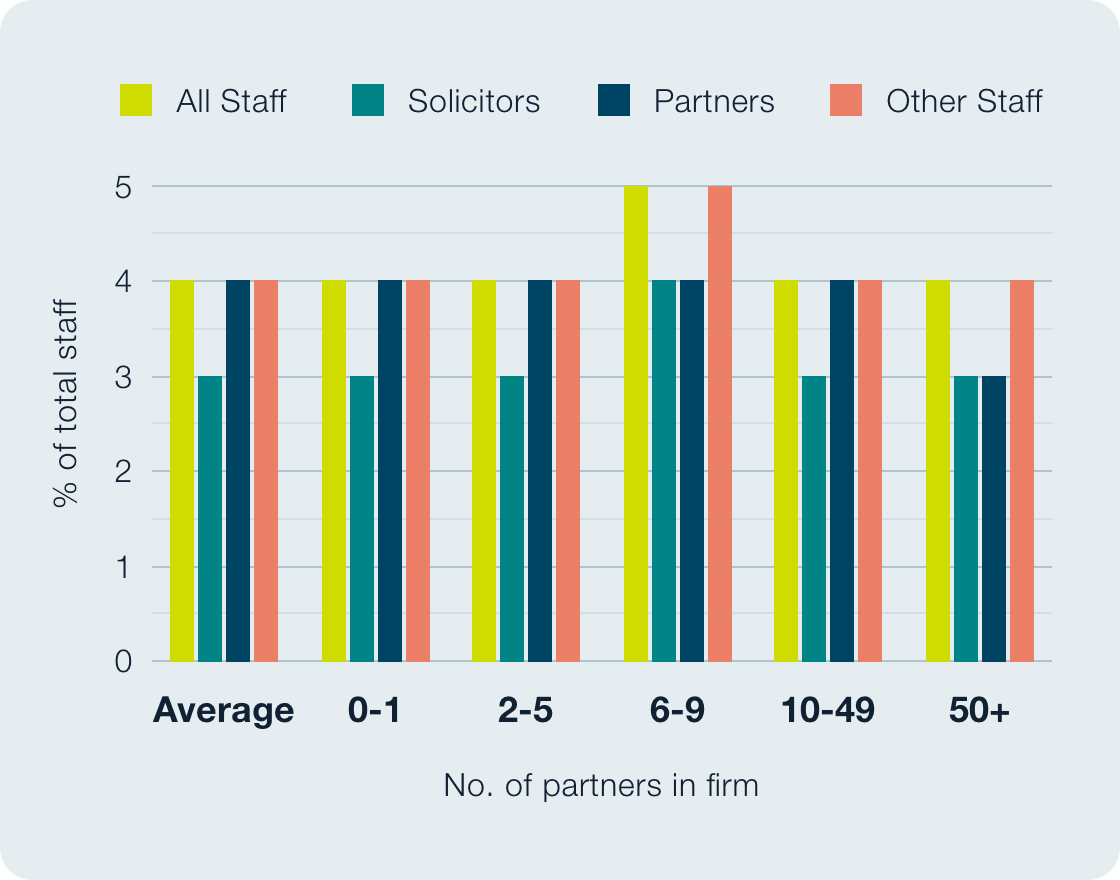The industry has too few disabled lawyers
Diversity research by the Solicitors Regulation Authority (SRA) has found that the proportion of lawyers who say they are disabled hasn’t changed over the past six years. From 2014 to 2019, this number has held steady with only 3% of lawyers saying they consider themselves to be disabled. This is in stark contrast to the 19% of the UK’s working population who say they’re disabled and one of the major shortfalls in the law industry’s diversity metrics. On a positive note, there are some marginal improvements when firm size is considered. In the 2019 survey, employees in firms with 6-9 partners were most likely to say they’re disabled, broken down into 5% of partners, 5% of non-lawyer support staff, and 4% of solicitors.
City Disabilities, founded by profoundly deaf solicitor Robert Hunter, states that many disabled job seekers often agonise over whether they should tell their employer about their disability, suggesting an element of underreporting in the SRA survey. Unfortunately, this could mean that there are many employers currently unaware of their employees’ disabilities – particularly those that are easier to hide – and that employees aren’t getting the support they need as a result. Law firms – big and small – need to clearly and emphatically state their unconditional support for potential candidates who may have visible or hidden disabilities. Engaging with organisations such as the Lawyers with Disabilities Division, Legally Disabled and Deaf and Disabled People’s Organisations (DDPOs) can also help law firms ensure their efforts are as effective as possible.
You can learn more about the topic of disability in our investigation into the accessibility of Britain’s courthouses.

Distribution of disabled staff by law firm size in 2019


